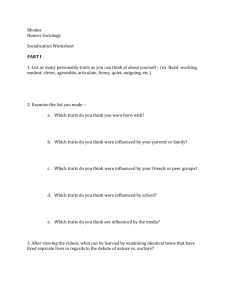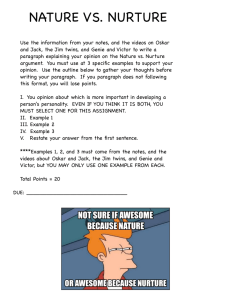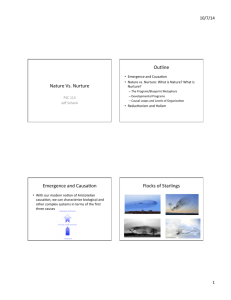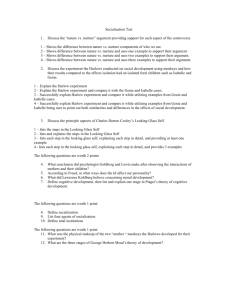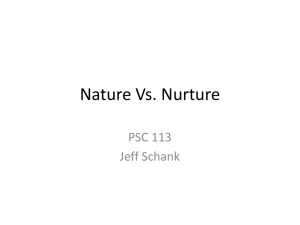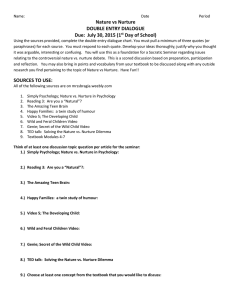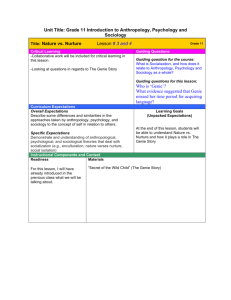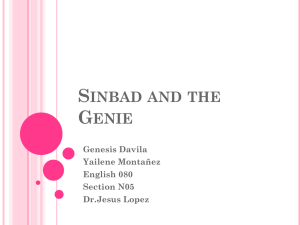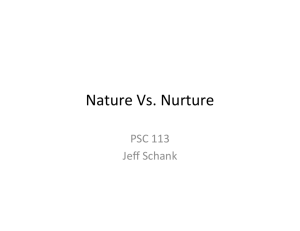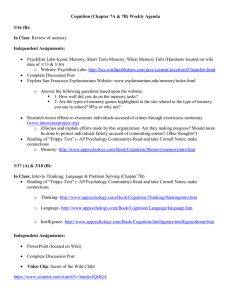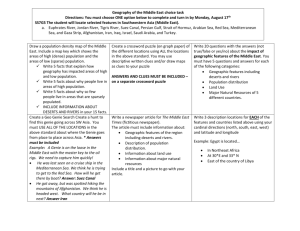Nature Nurture
advertisement
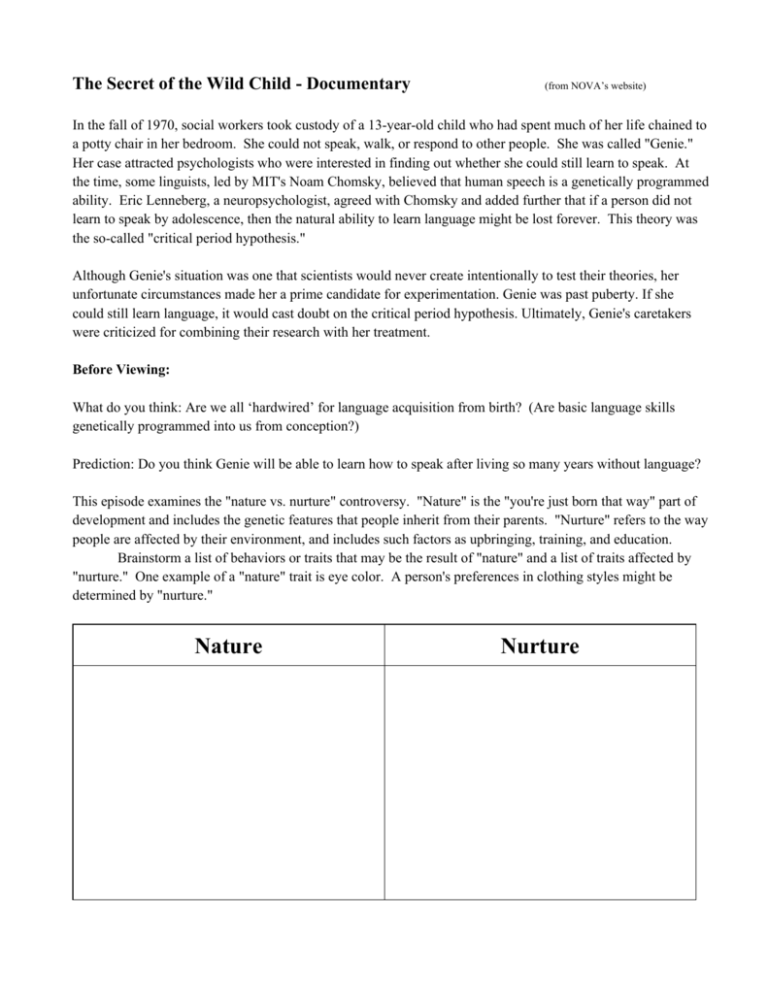
The Secret of the Wild Child ­ Documentary (from NOVA’s website) In the fall of 1970, social workers took custody of a 13­year­old child who had spent much of her life chained to a potty chair in her bedroom. She could not speak, walk, or respond to other people. She was called "Genie." Her case attracted psychologists who were interested in finding out whether she could still learn to speak. At the time, some linguists, led by MIT's Noam Chomsky, believed that human speech is a genetically programmed ability. Eric Lenneberg, a neuropsychologist, agreed with Chomsky and added further that if a person did not learn to speak by adolescence, then the natural ability to learn language might be lost forever. This theory was the so­called "critical period hypothesis." Although Genie's situation was one that scientists would never create intentionally to test their theories, her unfortunate circumstances made her a prime candidate for experimentation. Genie was past puberty. If she could still learn language, it would cast doubt on the critical period hypothesis. Ultimately, Genie's caretakers were criticized for combining their research with her treatment. Before Viewing: What do you think: Are we all ‘hardwired’ for language acquisition from birth? (Are basic language skills genetically programmed into us from conception?) Prediction: Do you think Genie will be able to learn how to speak after living so many years without language? This episode examines the "nature vs. nurture" controversy. "Nature" is the "you're just born that way" part of development and includes the genetic features that people inherit from their parents. "Nurture" refers to the way people are affected by their environment, and includes such factors as upbringing, training, and education. Brainstorm a list of behaviors or traits that may be the result of "nature" and a list of traits affected by "nurture." One example of a "nature" trait is eye color. A person's preferences in clothing styles might be determined by "nurture." Nature Nurture
